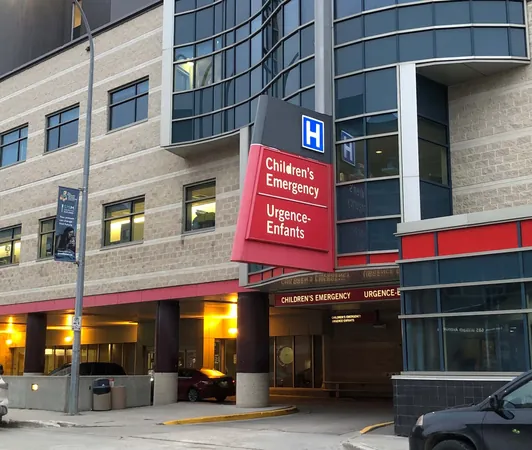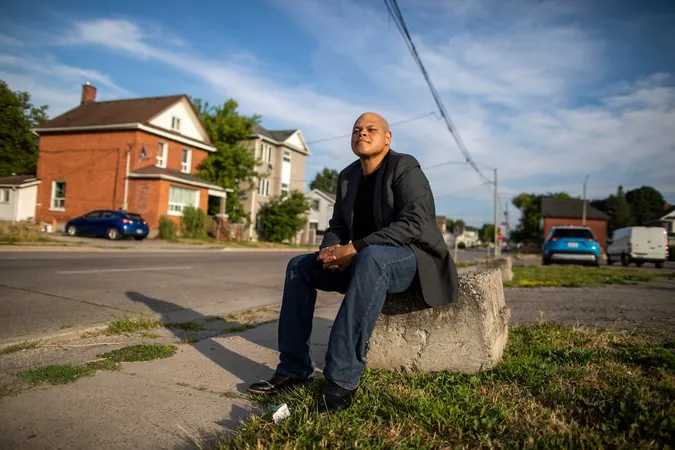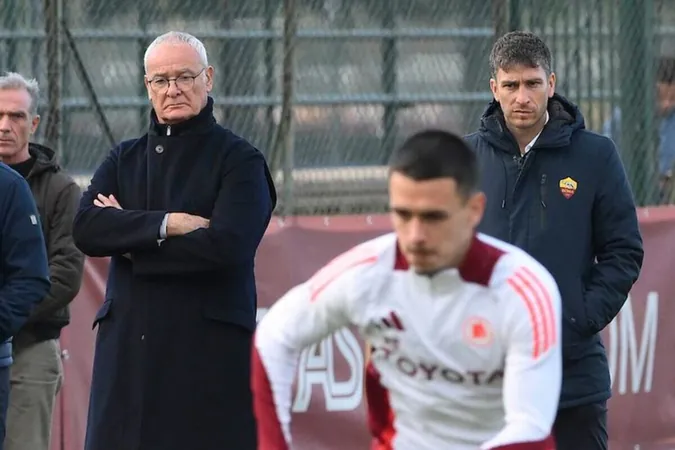
Urgent Call for Manitoba to Extend RSV Protection to All Newborns: Health Experts Demand Action!
2024-11-08
Author: Jacques
Urgent Call for Manitoba to Extend RSV Protection to All Newborns: Health Experts Demand Action!
In a pressing move to safeguard the health of newborns in Manitoba, health professionals are urging the provincial government to provide all infants with antibody shots against Respiratory Syncytial Virus (RSV). This comes at a time when hospitalizations for babies infected with this highly contagious virus have surged.
Currently, only high-risk infants, mainly premature babies, are eligible for RSV shots in Manitoba, whereas neighboring provinces like Ontario, Quebec, and Nunavut are rolling out the monoclonal antibody nirsevimab to all newborns free of charge this fall. This single-dose treatment has been shown to provide substantial protection against hospitalization associated with RSV, boasting an 80% efficacy rate, and lasts for at least five months.
Shared Health data reveals alarming trends, with hospitalizations of children under two reaching a nine-year high during the 2022-23 RSV season, totaling 280 cases. Although this number dropped to 199 in the current season, it still represents the third highest in the past decade. The average hospital admission for this age group over the last nine seasons stands at 153.
Epidemiologist Colin Furness emphasized the distressing reality of witnessing infants struggle to breathe due to RSV, which can lead to serious conditions such as pneumonia or bronchiolitis. He strongly advocates for the universal administration of the RSV antibody to all newborns. “It’s difficult to ignore how simple the preventative measure is,” Furness stated.
As Manitoba evaluates its response, the success of Ontario's universal immunization program could provide insights. Launched based on updated recommendations from the National Advisory Committee on Immunization (NACI), Ontario's initiative is a commendable step toward protecting all infants from RSV.
The monoclonal antibody nirsevimab, marketed under the name Beyfortus and approved by Health Canada in April 2023, is identified as a more cost-effective alternative to the existing treatment in Manitoba—palivizumab—which can cost between $5,000 to $9,000 for a full season and requires monthly injections. Attempts to transition to nirsevimab were thwarted due to supply constraints, as Sanofi prioritized provinces implementing universal programs.
Dr. Aaron Chiu, director of Manitoba's RSV prophylaxis program, highlighted that the primary focus is currently on the 250 to 300 high-risk children under four, emphasizing the need for a broader initiative. Meanwhile, Dr. Brent Roussin, Manitoba's chief public health officer, indicated that any move toward a universal program would involve careful cost-benefit analysis.
Local experts agree on the necessity of immediate action. Assistant Professor Barbara Porto from the University of Manitoba stressed the importance of funding nirsevimab to protect infants throughout the winter season, alleviating the considerable strain on the healthcare system. Dr. Philippe Lagacé-Wiens echoed this sentiment and pointed out that Ontario’s coverage for RSV vaccines for pregnant women highlights a disparity, as mothers in Manitoba must pay around $300 out-of-pocket for similar protection.
As RSV season approaches, the urgency for Manitoba to prepare a comprehensive immunization strategy is critical. The health and well-being of infants are at stake, and failing to act could have devastating consequences for families and the healthcare system alike.
The time for change is now—families across Manitoba are counting on their government to step up and protect their littlest ones!









 Brasil (PT)
Brasil (PT)
 Canada (EN)
Canada (EN)
 Chile (ES)
Chile (ES)
 España (ES)
España (ES)
 France (FR)
France (FR)
 Hong Kong (EN)
Hong Kong (EN)
 Italia (IT)
Italia (IT)
 日本 (JA)
日本 (JA)
 Magyarország (HU)
Magyarország (HU)
 Norge (NO)
Norge (NO)
 Polska (PL)
Polska (PL)
 Schweiz (DE)
Schweiz (DE)
 Singapore (EN)
Singapore (EN)
 Sverige (SV)
Sverige (SV)
 Suomi (FI)
Suomi (FI)
 Türkiye (TR)
Türkiye (TR)